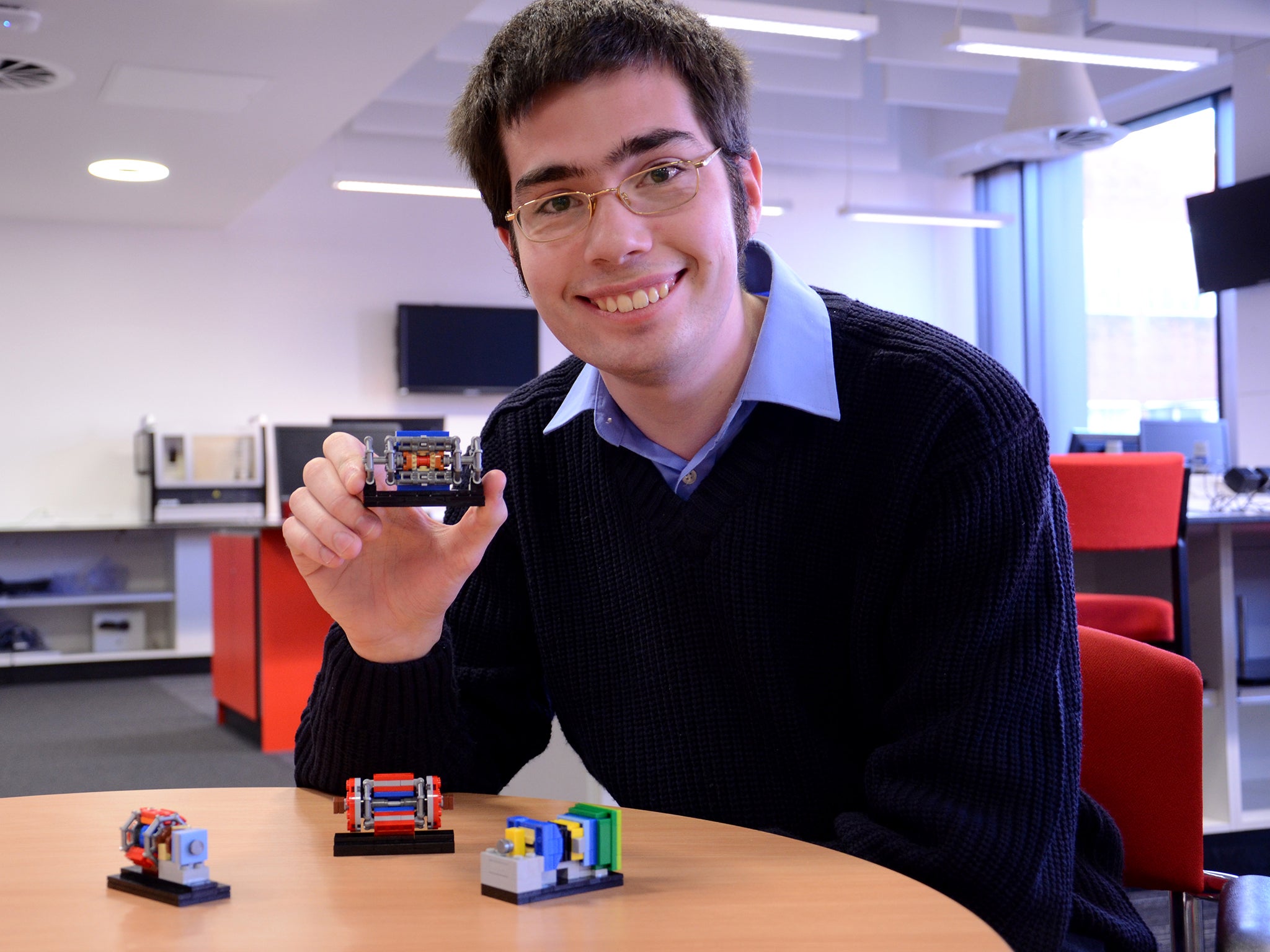Postgraduate: ‘I fell in love with science at an early age’
'At three years old, if we’d had a basement, I would have been down there trying to build a moon rocket'

Your support helps us to tell the story
From reproductive rights to climate change to Big Tech, The Independent is on the ground when the story is developing. Whether it's investigating the financials of Elon Musk's pro-Trump PAC or producing our latest documentary, 'The A Word', which shines a light on the American women fighting for reproductive rights, we know how important it is to parse out the facts from the messaging.
At such a critical moment in US history, we need reporters on the ground. Your donation allows us to keep sending journalists to speak to both sides of the story.
The Independent is trusted by Americans across the entire political spectrum. And unlike many other quality news outlets, we choose not to lock Americans out of our reporting and analysis with paywalls. We believe quality journalism should be available to everyone, paid for by those who can afford it.
Your support makes all the difference.As heroes go, Wallace – the jug-eared, cheese-obsessed plasticine inventor in Nick Park’s Wallace and Gromit animations – is pretty unlikely. “At three years old, if we’d had a basement, I would have been down there trying to build a moon rocket,” laughs Nathan Readioff. “My fascination with science goes back as far as I can remember. I fell in love with the subject at an early age – especially particle physics, trying to learn how the universe works.”
Having completed a four-year Master of physics degree at the University of Liverpool, Readioff is a PhD student at the young age of 24. Currently he is based at the European Organisation for Nuclear Research (Cern) in Switzerland.
“We know that the Higgs Boson exists,” Readioff says of his research project, “but it decays in a wide variety of ways. In order to fully understand it, we need to measure its properties in as many decay channels as possible. Therefore, I’m searching for the process of a Higgs decaying to a Z Boson and a photon – something so rare that we haven’t even seen it in all the data gathered so far. I have been working on analysis to develop computer software and implement new techniques.”
Consequently, Readioff is gaining notoriety as a scientist in his own right. “Although I am a PhD student, I’m treated with respect by my colleagues,” he feels. “I’m attending meetings, presenting my research and getting feedback. What I’m working on is a tiny part of a huge tapestry – but it’s my little contribution, and what’s exciting is that it has the potential to be historically significant.”
He’s still excited about building things, too. “I love all things Lego,” Readioff smiles. “A colleague called Sascha Mehlhase designed a fabulous, metre-long scale model of the Atlas detector out of about 10,000 Lego pieces. I wanted one, but they cost about £3,000 – so I started working on my own, smaller version. I then got chatting to a colleague from Liverpool about it during a coffee break and she asked if I could do a similar one of Alice, one of the other detectors. Once I had those two, I couldn’t leave it until I had the complete set of four Large Hadron Collider (LHC) detectors.”
He spent a month building these as accurately as possible, producing instructions on how to recreate them with information about each detector at build-your-own-particle- detector.org. “It was a great challenge to use Lego to capture the detectors’ complex shapes, making sure that all the key components are there.”
Next, Readioff is hoping to have Lego kits made for retail, submitting his proposal to Lego Ideas. “That’s a platform where any member of the public can put forward an idea,” he explains. “If it gets 10,000 votes, Lego will take it to review and possibly create a box set to sell online and in their stores worldwide.
“My hope through this is to bring science to the public. It’s a side project rather than part of my PhD,” he adds, “but it’s an increasingly time- consuming one!”
Meanwhile, Readioff is on track to graduate in the summer of 2016, returning to Liverpool in June to write up his thesis. “After that, I’d dearly love to stay in research and take on some post-doctorate work. I like working with things that fit together within a logical framework,” concludes the physicist.
Interview by Jessica Moore
Join our commenting forum
Join thought-provoking conversations, follow other Independent readers and see their replies
Comments